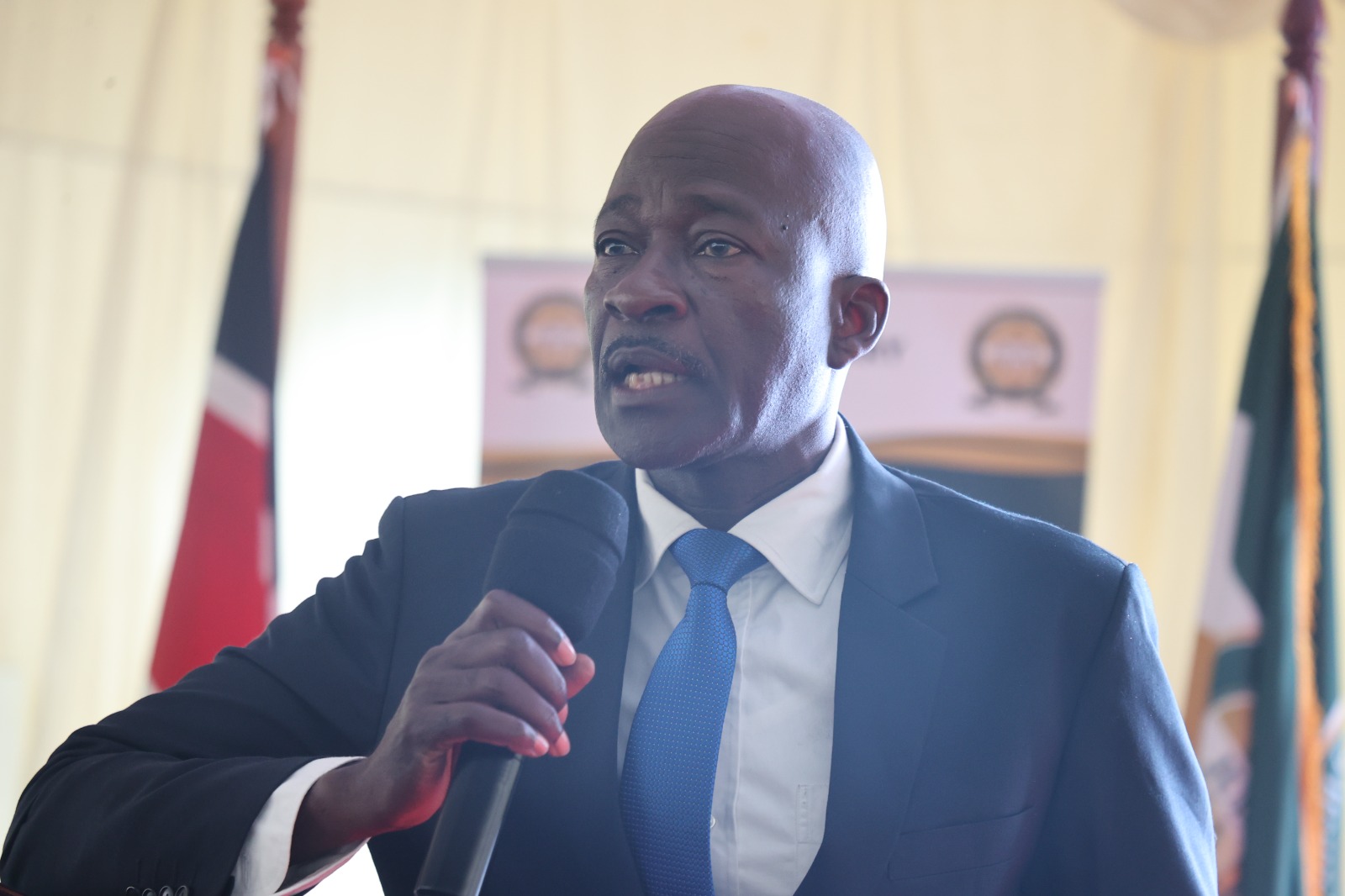
Ogola-led bench slaps Gachagua with costs, affirms DCJ empanelment » Capital News
NAIROBI, Kenya, Oct 23 — A three-judge bench Wednesday rejected Rigathi Gachagua’s application contesting Deputy Chief Justice Philomena Mwilu’s authority to constitute it.
Justices Eric Ogola, Anthony Mtima and Dr Freda Mugambi dismissed the application with costs after faulting lawyers representing the ousted Deputy President for “playing to the gallery”.
The court rejected an assertion by Gachagua’s lawyers that Mwilu lacks the constitutional authority to constitute benches under Article 165 (4) of the Constitution, a function they argued is exclusively reserved for the Chief Justice.
“It is therefore our finding that the constitutional function of the CJ to assign benches, being an administrative function, can be performed by the DCJ when the CJ, for good reason, is unable to perform,” the bench held.
The Justice Ogola-led bench also dismissed arguments that it convened unconventionally on Saturday to invite parties for an inter-parties hearing on Tuesday.
The bench noted that the electronic Case Tracking System (CTS) allowed for seemless handling for urgent matters and that lawyers are well aware of the practise.
“There was nothing unconventional in the manner in which this bench dealt with the two applications filed under certificate of urgency,” the judges held.
“It is not unusual for courts to issue directions within the filing of an application or what would be termed as outside the routine work hours of the court when circumstances do so require,” the bench ruled.
Sabotaging the court
The bench further held that the court can issue directions on an application without the need for a formal sitting.
The court also took exception with the conduct of petitioners led by Senior Counsel Paul Muite, representing Gachagua, over an apparent scheme to derail proceedings.
The bench wondered why Muite’s team would consider their petition urgent when seeking stay orders, ex parte, but seek to slow its hearing once they do so.
“It is now apparent that the applicants no longer perceive the urgency in this matter. Instead, they see to cast aspersions on this court for addressing the matter with the necessary expedition,” the bench stated.
“Such conduct is contradictory and undermines the very urgency that the applicants had initially invoked.”
Gachagua launched the application contesting Mwilu’s role in empaneling the bench on Tuesday when the court convened an inter-parties hearing, scuttling proceedings intended to consider an application for review of orders halting the swearing in of Interior Cabinet Secretary Kithure Kindiki as Deputy President.
The State Law Office also notified the court of its intention to oppose the listing of President William Ruto in the suits in violation of presidential immunity.
Attorney General Dorcas Oduor, who appeared together with former Attorney General Githu Muigai, said the President had seperately instructed lawyers to challenge his inclusion.
President Ruto had filed a preliminary objection at the Kirinyaga High Court challenging the nomination of Interior Cabinet Secretary Kithure Kindiki as Deputy President, terming the case as flawed.
‘Defective case’
Lawyer Adrian Kamotho contended that the nomination of Kindiki to replace Rigathi Gachagua, following his impeachment on Thursday, October 17, can only be challenged as a presidential election petition at the Supreme Court.
He argued that the court, presided over by Justice Richard Mwongo, lacked jurisdiction to determine the case as framed.
“By virtue of Article 165 (5) (a) of the Constitution, the Honorable Court cannot determine the petition as canvassed and/or grant the prayers sought, being a matter reserved for the exclusive jurisdiction of the Supreme Court,” Kamotho pleaded.
“The petition, as drawn and filed, contravenes Article 140 as read together with Articles 148 and 149 of the Constitution, which provisions absolutely vest the Supreme Court with the mandate to determine disputes emanating from a presidential electoral process,” the lawyer argued.
Kamotho also cited Article 143 of the Constitution, arguing that as Head of State, the constitution grants President Ruto immunity from prosecution, and as such, he cannot be subject to a civil suit.
Article 143 (1) provides that: “Criminal proceedings shall not be instituted or continued in any court against the President or a person performing the functions of that office, during their tenure of office.”
Article 143 (2) further states: “Civil proceedings shall not be instituted in any court against the President or the person performing the functions of that office during their tenure of office in respect of anything done or not done in the exercise of their powers under this Constitution.”
Kamotho further cited a Supreme Court decision in Attorney-General & 2 others v Ndii & 79 others; Dixon & 7 others (Amicus Curiae) (Petition 12, 11 & 13 of 2021 (Consolidated)) [2022] KESC 8 (KLR) (31 March 2022) (Judgment).
About The Author